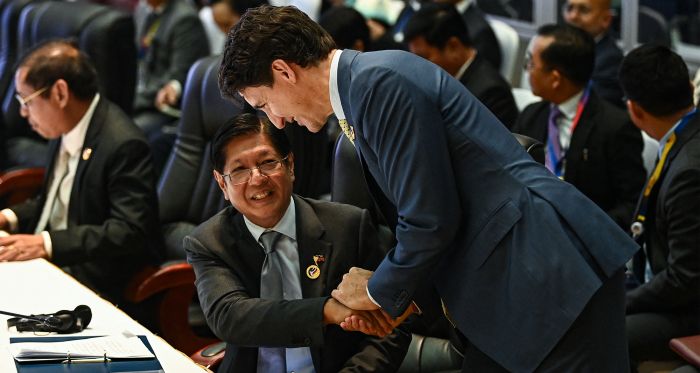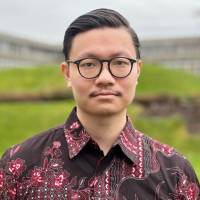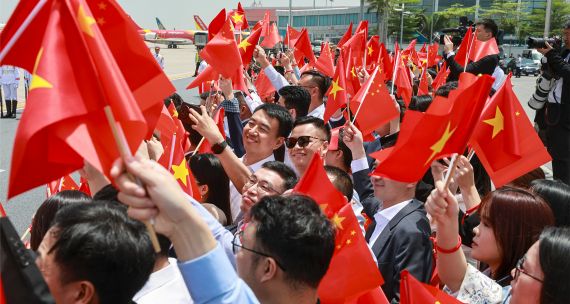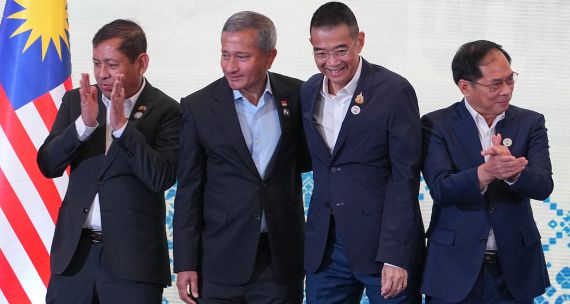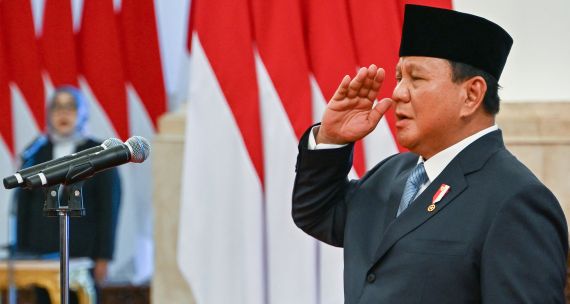The Association of Southeast Asian Nations (ASEAN) Summit, held in Vientiane, Laos, from October 6 to 11, concluded with little progress on two increasingly pressing issues: the civil war in Myanmar and tensions in the South China Sea.
Occurring in tandem with the ASEAN Summit, the East Asia Summit (EAS) brought together leaders from Southeast Asia and several ASEAN Dialogue Partner countries, including Australia, China, India, Japan, Russia, and the U.S. Discussions at the EAS also focused on the escalation of violence in the South China Sea and the crisis in Myanmar, as well as the deterioration of China-Taiwan relations.
On October 9 and 10, Canadian Prime Minister Justin Trudeau attended the ASEAN-Canada Special Summit as part of Ottawa’s efforts to deepen ties with the bloc. At the summit, Ottawa announced the appointment of resident ambassadors in Cambodia and Laos and upcoming trade missions to Thailand and Cambodia, while exploring additional areas of co-operation, such as clean energy technology, critical minerals, and food security.
In Brief
- The recent ASEAN Summit marked the first time in three years that a senior representative from the Myanmar junta has been allowed to attend. Following that country’s military coup in 2021, ASEAN limited the junta’s participation to “non-political representatives.” ASEAN’s decision to permit the attendance of a high-level junta official without the inclusion of other relevant stakeholders was viewed as a “compromise” and reaffirmed concerns that the bloc is losing its resolve to effectively address the crisis.
- At the EAS (which does not include Canada), the various participants traded accusations. Russian foreign minister Sergey Lavrov referred to U.S. actions in Southeast Asia as “destructive.” Meanwhile, U.S. Secretary of State Antony Blinken expressed Washington’s growing concerns about China’s “dangerous” behaviour in the South China Sea and reiterated the U.S.’s commitment to upholding freedom of navigation in the disputed waterway. Both China and Russia had opposed the final ASEAN draft statement for its reference to UNCLOS, the UN treaty guiding maritime activities. China, while a signatory to the treaty, has refused to recognize a 2016 arbitral ruling that rejected Beijing’s territorial claim in the South China Sea.
- Building on the ASEAN-Canada Strategic Partnership launched in 2023, Ottawa allocated C$128 million for joint partnerships in combating climate change, tackling organized crime, and strengthening peace and security initiatives.
- At the 27th ASEAN-China summit, disputes in the South China Sea were a prominent issue. Referring to its frequent and often violent confrontations with China in the region, the Philippines urged ASEAN and China to hasten negotiations on the Code of Conduct (COC), a set of guidelines to alleviate tensions in the disputed waterway. The chairman’s statement by Laos declined to openly denounce China’s aggression, instead calling for the creation of confidence-building measures to de-escalate tensions.
Implications
The Myanmar crisis looms large — with no resolution in sight. ASEAN leaders urged an immediate cessation of the violence in Myanmar, the safe delivery of humanitarian aid, and the initiation of inclusive dialogue. Thailand will host an informal ASEAN consultation in December to deepen the bloc’s engagement on Myanmar, which has been welcomed by Laos and Malaysia.
However, with little progress on ASEAN’s Five-Point Consensus, which calls for an end to violence between stakeholders, the rift has deepened between bloc members who are critical of the military’s lack of commitment to establishing peace and those who want increased bilateral engagement with the junta. The Philippines has become increasingly vocal about the ineffectiveness of the ASEAN peace plan and has suggested alternative approaches may be needed.
Conflicting goals hinder the bloc’s unity on the South China Sea. On China’s continued aggression in the South China Sea, Laos tried to strike a balance in accommodating the concerns of ASEAN’s claimant states while refraining from publicly criticizing Beijing, its top economic partner. With negotiations between ASEAN and China on the COC stalling, many experts doubt whether the negotiations will conclude by the expected 2026 deadline and whether such an agreement would even be effective in resolving the dispute.
Reiterating the Philippines’ desire to advance negotiations, Philippine President Ferdinand Marcos Jr. called for all claimant states to “exercise self-restraint" in actions that could undermine peace and stability in the disputed waterways. In contrast, Vietnam, another claimant state, has been less openly critical of China. Hanoi wants ASEAN to strengthen solidarity among member states, maintain its firm approach to international and regional issues, and address external risks swiftly.
What's Next
1. Malaysia to chair ASEAN in 2025
When Malaysia becomes the ASEAN chair in 2025, it is expected to take a more proactive stance on the Myanmar conflict and the South China Sea; however, anxieties have grown around Kuala Lumpur’s growing economic ties with China, and its implications for further eroding ASEAN unity and the bloc’s ability to resolve regional issues. Despite these concerns, ASEAN is unlikely to significantly alter its stance towards these issues given its consensus-based approach and limits on the chair’s decision-making powers.
2. U.S. election and its regional implications
ASEAN member states are bracing for the outcome of the U.S. presidential election on November 5. Another Donald Trump presidency could ramp up U.S. protectionism and isolationism and decrease the U.S.’s military presence in Southeast Asia. This would be especially concerning for the Philippines, which has strengthened military ties with Washington as tensions with China have risen. In contrast, a win for U.S. Vice President Kamala Harris would likely lead to continued or even expanded U.S. involvement with ASEAN. Harris, alongside U.S. President Joe Biden, has actively participated in various ASEAN-led initiatives.
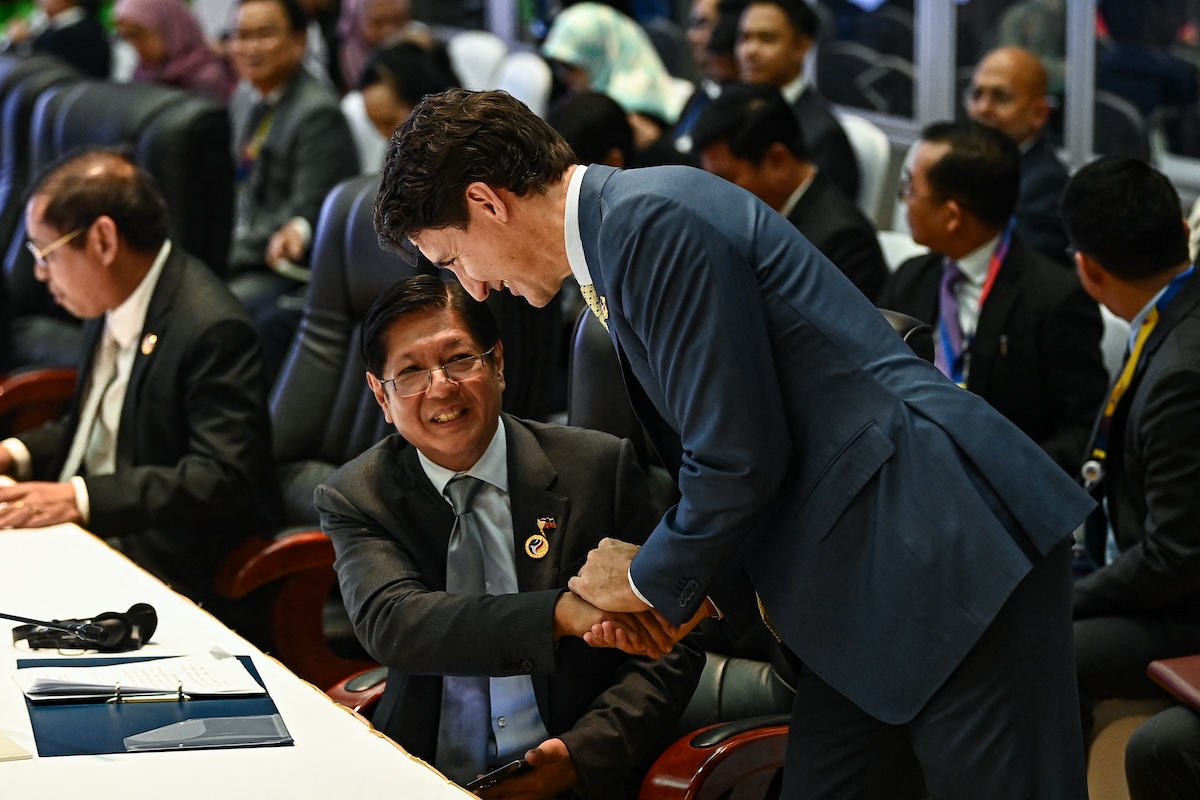
3. Growing ASEAN-Canada relations
Encompassing some of the fastest-growing economies in the world, ASEAN is an integral part of Canada’s Indo-Pacific Strategy. Upcoming ASEAN-Canada initiatives to increase economic integration include the expansion of Export Development Canada offices in Southeast Asia and the opening of a branch of FinDev, Canada's development finance institution, in Singapore. Canada is also negotiating the Canada-ASEAN Free Trade Agreement, which is set to be finalized by late 2025.
• Edited by Erin Williams, Senior Program Manager, Vina Nadjibulla, Vice-President Research & Strategy, and Ted Fraser, Senior Editor, APF Canada
